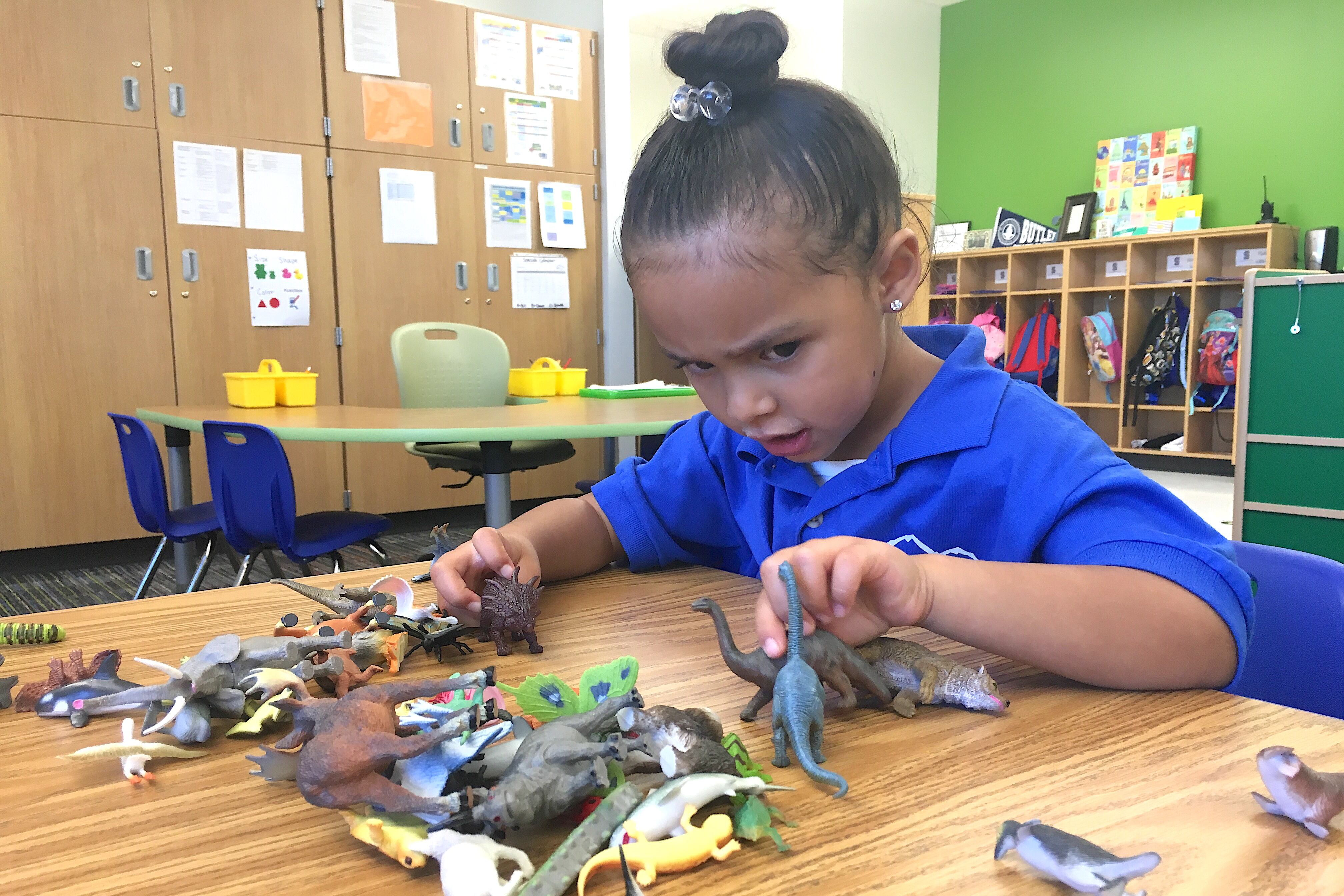Gov. Jared Polis took office last year with an ambitious early childhood agenda. In addition to free statewide full-day kindergarten, he sought a major expansion of Colorado’s state-funded preschool program.
Now, everything from the state’s day-to-day priorities to its economic forecast has shifted, throwing the state’s preschool gains and plans for the future into question.
It’s a common storyline around the country right now, and national experts are worried that rollbacks in state-funded preschool seats and quality improvements will come at a time when more children than ever need strong early education programs.
W. Steven Barnett, senior co-director of the National Institute of Early Education Research at Rutgers University, said, “The COVID-19 pandemic and the current and looming economic crisis pose considerable threat to state-funded pre-K.”
Asked about the likelihood of a new dedicated federal funding stream to protect public preschool enrollment and quality initiatives — one recommendation in a report released Wednesday by the research institute — Barnett didn’t sound particularly optimistic.
“Greater than zero is my best estimate,” he said. “The opportunity is to put some kind of set-aside in a larger pool [of money], whether it’s education dollars or human services dollars.”
In Colorado, where lawmakers are preparing for a budget hit of as much as $3 billion, the potential impact on recent early childhood gains is unclear.
Last year, Polis secured funding for statewide full-day kindergarten and scored a solid if incomplete victory on preschool: more than 5,000 new half-day seats for the 2019-20 school year. As the legislative session began this year, Polis proposed funding another 6,000 preschool seats while a group of advocates planned a separate ballot measure that would raise money for preschool through a new nicotine tax.
Asked whether Polis planned to preserve the 5,000 new preschool seats added this year, a spokesman declined to discuss budget details.
Colorado is getting more than $40 million for the early childhood sector through a recent federal coronavirus relief package, but more than half of that money is already earmarked for emergency child care for essential workers and the state’s child care subsidy program for low-income families. While state officials haven’t yet determined how the rest will be used, it will likely help child care and preschool providers recover from prolonged closures and other pandemic-related financial harm.
As for the fate of the additional 6,000 state-funded preschool slots Polis requested in this year’s budget, even before the pandemic, lawmakers from both parties doubted they could find the funding.
Meanwhile, the ballot initiative, which could potentially raise enough money to expand free preschool to all Colorado 4-year-olds, is up in the air. Organizers say it’s still moving forward, but haven’t started collecting the signatures required to put it before voters in November.
They say with stay-at-home orders in place and public health concerns at play over the summer, gathering enough signatures in-person may be impossible.
Jake Williams, executive director of Healthier Colorado, one of the groups promoting the measure, said in an email that leaders are exploring other ways to get the tax proposal on the ballot. Options include a state modification of rules governing signature collection for citizen-led ballot initiatives. The legislature could also decide to put the measure on the ballot, though the state Senate rejected a similar effort last year.
Currently, Colorado’s public preschool program serves children from low-income families and those who have other risk factors, such as language or social delays.
This year, about 23,500 children — mostly 4-year-olds and some 3-year-olds — are enrolled, up from 22,000 last year. (While state officials frequently refer to more than 5,000 new preschool slots, that doesn’t mean 5,000 additional children were enrolled. School districts combined many of the new half-day slots this year to create full-day slots.)
Colorado is ranked 28th among states for the percentage of 4-year-olds enrolled in its state-funded preschool program, according to the new report from the National Institute for Early Education Research. That rank is based on enrollment during the 2018-19 school year, so it’s possible the state’s ranking will improve slightly in the institute’s report next year, when the 5,000-slot expansion is taken into account.
Even so, state officials estimate that 62% of eligible 3- and 4-year-olds are not served by the state’s preschool program — though some are served by the federal Head Start preschool program.
Colorado’s ranking is even worse when it comes to preschool funding — 39th among the 44 states plus Washington, D.C., that have public preschool programs. The state spent about $2,900 per preschooler in 2018-19 according to the new report — far below front-runner states like New Jersey, which spends about $13,000 per child, and Oregon, which spends nearly $10,000 per child.
Barnett said even as lawmakers face broad financial fallout from the coronavirus, they must invest in programs for young children.
“If we’re looking at what we have to preserve, we ought to be preserving our seed corn,” Barnett said. “This is the only future we have. ... There’s not a second chance.”






